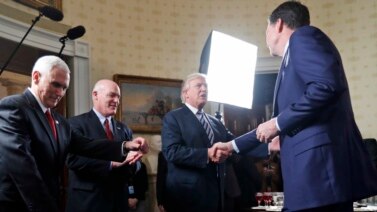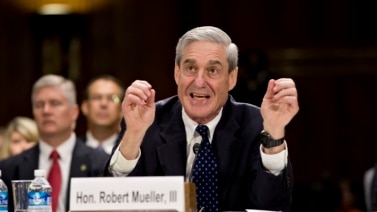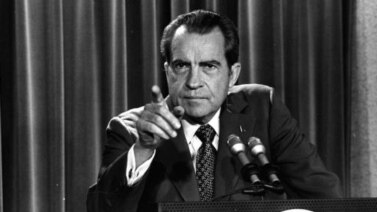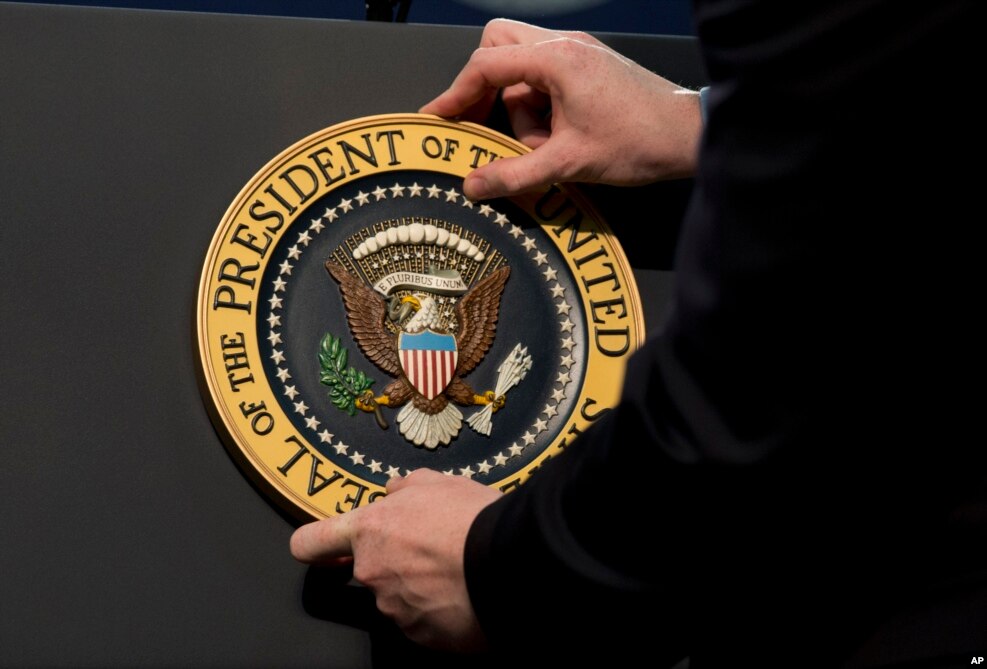
It is a constitutional question without a clear answer: Can a sitting American president be charged with a crime?
The question has new importance as special counsel Robert Mueller investigates the Trump 2016 presidential campaign. He is looking into possible connections between the campaign and Russians who reportedly interfered in the 2016 election.
Last week, it was reported that Mueller is using a grand jury as part of his investigation. Grand juries decide if government investigators may legally demand private records and information from witnesses. There was no information about when--or whether--Mueller would bring criminal charges in the case.
On Wednesday, the Washington Post reported that federal investigators searched and gathered evidence from the house of Paul Manafort, a Trump campaign manager.
Mueller can prosecute any federal crimes linked to the investigation. In theory, that could include legal action against the president. Mueller is reportedly investigating if Trump obstructed justice when he dismissed James Comey as director of the Federal Bureau of Investigation.
If Mueller’s team decides to bring charges against Trump, it could create a legal battle -- one that could likely end at the Supreme Court.
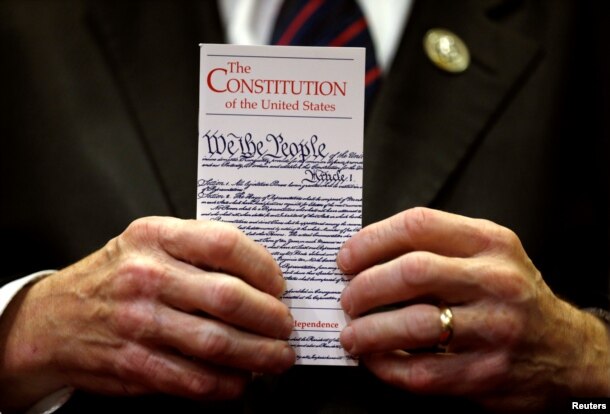
The Constitution lists conditions under which a president can be impeached and removed from office.
But the Constitution does not directly say whether the president can be prosecuted, or tried for a crime. Also, federal law does not say whether a president can be prosecuted. Courts have never ruled on the issue.
Eric Freedman teaches constitutional law at Hofstra University in New York. He says legal opinion is divided as to whether a sitting president can be charged with a crime.
“It’s an important and unsettled question,” says Freedman. He says the possibility of legal charges is another way to keep presidents answerable for their actions.
Those who believe a sitting president is protected from criminal charges say it comes down to governing the country. A criminal charge, they say, could prevent presidents from carrying out their duties. That would damage the ability of the government to work. They say this is an understood constitutional principle.
Others argue that the Constitution would include clear terms of such legal protection for the president if that is what its creators had wanted. These experts also argue that the Constitution clearly states no person is above the law.
Kenneth Starr agrees with this view. He was the independent counsel who investigated former President Bill Clinton.
In a Starr office memo recently uncovered by The New York Times, Starr said it is right, constitutional, and legal for a president to be charged for serious crimes that are not part of the president’s official duties.
“In this country,” he wrote, “no one, even President Clinton, is above the law.”
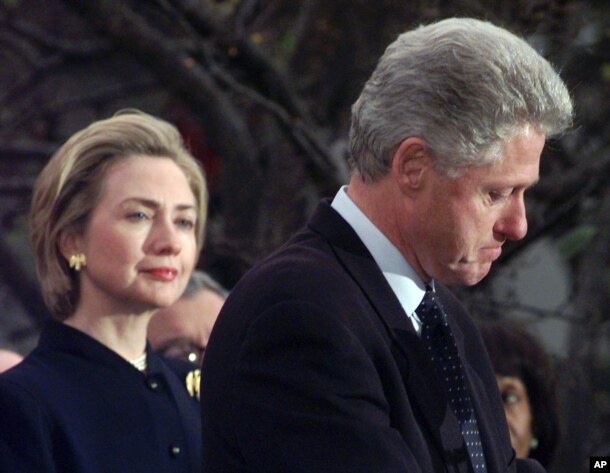
Impeachment
Impeachment is the process by which Congress brings charges against the president. It means Congress is the court that tries the president.
Impeachment is a political, not legal, process, according to James Pfiffner, a public policy professor at George Mason University. He believes impeachment is the best way constitutionally to hold a president accountable.
The Constitution says reasons to impeach a president include “treason, bribery, or other high crimes and misdemeanors.” Congress alone has the power to decide what that means.
What does it take to impeach a president?
A majority of lawmakers in the House of Representatives must agree on impeachment for it to happen. The Senate then holds a trial. And a president could be removed from office if two-thirds of the Senate agree the president is guilty.
Only two American presidents have been impeached by the House of Representatives - Bill Clinton and Andrew Johnson. The Senate ruled not guilty in both cases.
President Richard Nixon was facing possible impeachment when he resigned. The next president, Gerald Ford, pardoned Nixon after he left office. As a result, the former president could not face criminal charges.
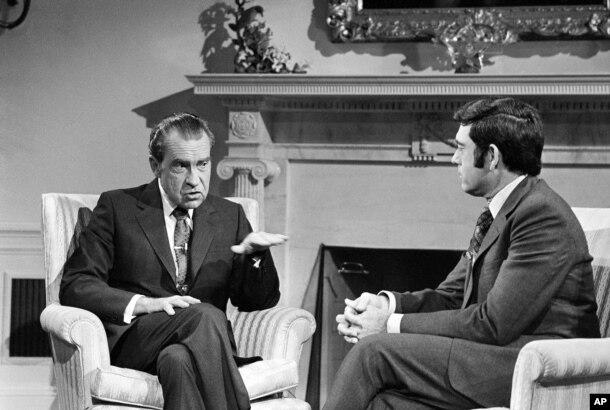
Pardons
Now, some are questioning if a sitting president could pardon him or herself. Last month, The Washington Post reported that President Trump had asked his lawyers about such a possibility, although his lawyer denied the newspaper story.
It appears the Constitution would permit a sitting president to pardon anyone for any crime at any time.
I’m Caty Weaver.
And I’m Anne Ball.
William Gallo wrote this story for VOA news. Anne Ball adapted this story for Learning English. Caty Weaver was the editor.
We want to hear from you. Write to us in the Comments Section and visit us on our Facebook page.
Words in This Story
counsel - n. a lawyer who represents a person or group in a court of law
prosecute - v. to hold a trial against a person who is accused of a crime to see if that person is guilty
obstruct - v. to block something so that things cannot move easily
impeach - v. to charge (a public official) with a crime done while in office

